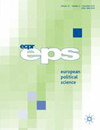European Political ScienceSCIESSCI
國際簡稱:EUR POLIT SCI 參考譯名:歐洲政治學(xué)
- 基本信息:
- ISSN:1680-4333
- E-ISSN:1682-0983
- 是否OA:未開放
- 是否預(yù)警:否
- TOP期刊:是
- 出版信息:
- 出版地區(qū):ENGLAND
- 出版商:Springer Nature
- 出版語言:English
- 出版周期:4 issues per year
- 出版年份:2001
- 研究方向:POLITICAL SCIENCE
- 評價信息:
- 影響因子:1.4
- CiteScore指數(shù):3.8
- SJR指數(shù):0.601
- SNIP指數(shù):1.027
- 發(fā)文數(shù)據(jù):
- Gold OA文章占比:37.27%
- 研究類文章占比:97.62%
- 年發(fā)文量:42
- 自引率:0.2
- 開源占比:0.252
- 出版撤稿占比:0
- 出版國人文章占比:0
- OA被引用占比:0.2043...
英文簡介European Political Science期刊介紹
European Political Science (EPS) is an international journal devoted to publishing contributions by and for the political science community. Its interpretation of 'political science' is wide and encompasses comparative politics, political economy, international relations, public administration, political theory, European studies and related disciplines. Although our traditional focus has been on European affairs and the development of the discipline, we are always on the lookout for work that compares politics in Europe with other continents and countries, and more general work (on other regions) that would be of interest to European political scientists (our main readership). As the professional journal of the European Consortium for Political Research, EPS is also a prime outlet for research notes and opinion pieces about the political science profession, including teaching and learning contributions, as well as symposia and academic debates. As a new initiative, we also publish original datasets.The editors of European Political Science (EPS), invite you to submit the following types of articles.Research - articles on conceptual, methodological, and theoretical developments and trends in political science. Articles aimed at this section should be intellectually stimulating, conceptually rigorous, critical and above all agenda-setting.Profession - articles about the state of the discipline, and where it is heading, relations between academia and politicians, policy-makers, journalists and ordinary citizens.Teaching - articles, debates and symposia on new approaches to teaching and learning political science.Debate - a collection of 3 to 4 articles (maximum 20,000 words) that exposes two countervailing perspectives on important current affairs or professional matters in order to generate awareness and reactions from the political science community.Symposium - a collection of 4 to 5 articles (maximum length 25,000 words) on a specific topic and under the coordination of one or two guest editors. The articles must cover either research matters (including the discipline, methodological and conceptual developments, as well as research findings in the classical sense that may contribute to an advancement of the discipline). Symposia can also tackle professional matters (such as career structures and prospects, external evaluation, higher education reforms, accreditation issues, funding trends).Datasets - original dataset accompanied by a short explanatory note explaining the dataset, its novelty, the variables included and the data sources. The descriptive piece will be under copyright, but not the dataset. This format allows authors to get their dataset published and cited, but also allows them and others them and others to use the data for research articles.
期刊簡介European Political Science期刊介紹
《European Political Science》自2001出版以來,是一本社會學(xué)優(yōu)秀雜志。致力于發(fā)表原創(chuàng)科學(xué)研究結(jié)果,并為社會學(xué)各個領(lǐng)域的原創(chuàng)研究提供一個展示平臺,以促進(jìn)社會學(xué)領(lǐng)域的的進(jìn)步。該刊鼓勵先進(jìn)的、清晰的闡述,從廣泛的視角提供當(dāng)前感興趣的研究主題的新見解,或?qū)彶槎嗄陙砟硞€重要領(lǐng)域的所有重要發(fā)展。該期刊特色在于及時報道社會學(xué)領(lǐng)域的最新進(jìn)展和新發(fā)現(xiàn)新突破等。該刊近一年未被列入預(yù)警期刊名單,目前已被權(quán)威數(shù)據(jù)庫SCIE、SSCI收錄,得到了廣泛的認(rèn)可。
該期刊投稿重要關(guān)注點:
Cite Score數(shù)據(jù)(2024年最新版)European Political Science Cite Score數(shù)據(jù)
- CiteScore:3.8
- SJR:0.601
- SNIP:1.027
| 學(xué)科類別 | 分區(qū) | 排名 | 百分位 |
| 大類:Social Sciences 小類:Political Science and International Relations | Q1 | 106 / 706 |
85% |
CiteScore 是由Elsevier(愛思唯爾)推出的另一種評價期刊影響力的文獻(xiàn)計量指標(biāo)。反映出一家期刊近期發(fā)表論文的年篇均引用次數(shù)。CiteScore以Scopus數(shù)據(jù)庫中收集的引文為基礎(chǔ),針對的是前四年發(fā)表的論文的引文。CiteScore的意義在于,它可以為學(xué)術(shù)界提供一種新的、更全面、更客觀地評價期刊影響力的方法,而不僅僅是通過影響因子(IF)這一單一指標(biāo)來評價。
中科院SCI分區(qū)European Political Science 中科院分區(qū)
| 大類學(xué)科 | 分區(qū) | 小類學(xué)科 | 分區(qū) |
| 社會學(xué) | 2區(qū) | POLITICAL SCIENCE 政治學(xué) | 3區(qū) |
中科院分區(qū)表 是以客觀數(shù)據(jù)為基礎(chǔ),運用科學(xué)計量學(xué)方法對國際、國內(nèi)學(xué)術(shù)期刊依據(jù)影響力進(jìn)行等級劃分的期刊評價標(biāo)準(zhǔn)。它為我國科研、教育機構(gòu)的管理人員、科研工作者提供了一份評價國際學(xué)術(shù)期刊影響力的參考數(shù)據(jù),得到了全國各地高校、科研機構(gòu)的廣泛認(rèn)可。
中科院分區(qū)表 將所有期刊按照一定指標(biāo)劃分為1區(qū)、2區(qū)、3區(qū)、4區(qū)四個層次,類似于“優(yōu)、良、及格”等。最開始,這個分區(qū)只是為了方便圖書管理及圖書情報領(lǐng)域的研究和期刊評估。之后中科院分區(qū)逐步發(fā)展成為了一種評價學(xué)術(shù)期刊質(zhì)量的重要工具。
JCR分區(qū)European Political Science JCR分區(qū)
| 按JIF指標(biāo)學(xué)科分區(qū) | 收錄子集 | 分區(qū) | 排名 | 百分位 |
| 學(xué)科:POLITICAL SCIENCE | SSCI | Q2 | 141 / 317 |
55.7% |
| 按JCI指標(biāo)學(xué)科分區(qū) | 收錄子集 | 分區(qū) | 排名 | 百分位 |
| 學(xué)科:POLITICAL SCIENCE | SSCI | Q2 | 152 / 317 |
52.21% |
JCR分區(qū)的優(yōu)勢在于它可以幫助讀者對學(xué)術(shù)文獻(xiàn)質(zhì)量進(jìn)行評估。不同學(xué)科的文章引用量可能存在較大的差異,此時單獨依靠影響因子(IF)評價期刊的質(zhì)量可能是存在一定問題的。因此,JCR將期刊按照學(xué)科門類和影響因子分為不同的分區(qū),這樣讀者可以根據(jù)自己的研究領(lǐng)域和需求選擇合適的期刊。
發(fā)文數(shù)據(jù)
- 國家/地區(qū)數(shù)量
- England46
- USA28
- GERMANY (FED REP GER)25
- Italy20
- Netherlands18
- Spain15
- Belgium11
- Scotland10
- Sweden10
- Canada9
投稿常見問題
-
請問這本期刊屬于什么級別呢?可用于職稱評定嗎?
一般刊物只分省級、部級、核心,期刊本身是沒有幾類劃分的,具體是幾類或者幾級,您可以對照單位的分類文件確認(rèn)一下。European Political Science雜志是由Springer Nature出版的一本SCIE、SSCI,可用于職稱評定。
-
你們能夠提供哪些核心期刊的咨詢服務(wù)?
大多數(shù)核心期刊我們都是可以提供咨詢服務(wù)的。目前核心期刊主要分為以下幾類:1.國內(nèi)核心:按照權(quán)威度排序,社科類:南大核心>南大擴展>北大核心>科技核心 按照權(quán)威度排序。工科類:CSCD C庫>CSCD E庫(相當(dāng)于CSCD擴展)>北大核心>科技核心。2.國外核心(全英文):按照權(quán)威度排序為:SSCI=SCI>EI>ISTP=CPCI。
-
想快速發(fā)表,可以加急嗎?
為了確保您的職稱評定順利進(jìn)行,我們建議提前半年到一年開始準(zhǔn)備,這樣能夠保證有充足的時間來處理所有相關(guān)事宜。如果客戶需要加急服務(wù),我們會與雜志社進(jìn)行溝通,以確定是否可以提供加急服務(wù)。請注意,如果確認(rèn)可以加急,可能會收取一定的加急費用。
-
你們提供的服務(wù)可以確保稿件被發(fā)表嗎?
期刊編輯會綜合考慮多個因素,如發(fā)表范圍、學(xué)術(shù)價值和原創(chuàng)性等,對稿件進(jìn)行綜合評估。盡管任何機構(gòu)均無法保證每篇稿件都會被發(fā)表,但我們可以用專業(yè)知識和豐富經(jīng)驗,協(xié)助您理解并遵循期刊的發(fā)表要求,從而提高您的稿件被發(fā)表的機率。
-
請問期刊發(fā)表的費用如何?
期刊發(fā)表的費用因期刊不同而異。根據(jù)您的需求,我們會為您推薦性價比最高的期刊,并提供專業(yè)的期刊供您選擇。一般來說,只要符合職稱要求,大多數(shù)作者都會選擇性價比最高的期刊作為意向期刊進(jìn)行重點咨詢。我們會為您提供詳細(xì)的期刊信息和費用說明,以確保您能夠做出明智的選擇。
-
如果稿件被拒,未能成功發(fā)表,費用是否可以退還?
一般來說,我們推薦的期刊和您的專業(yè)方向、文章情況都是匹配的,極少出現(xiàn)稿件被拒的情況。如果稿件被拒,期刊編輯會提供詳細(xì)的拒稿信和建議,以幫助您了解拒稿原因并改進(jìn)您的稿件。關(guān)于退款政策,具體情況可能因期刊不同而異,請您咨詢我們的工作人員以獲取詳細(xì)信息。
相關(guān)期刊推薦
-
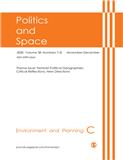
Environment And Planning C-politics And Space
中科院 2區(qū) JCR Q2
大類:社會學(xué)
-
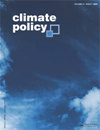
Climate Policy
中科院 1區(qū) JCR Q1
大類:社會學(xué)
-
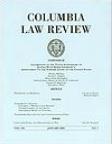
Columbia Law Review
中科院 2區(qū) JCR Q1
大類:社會學(xué)
-
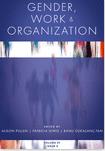
Gender Work And Organization
中科院 1區(qū) JCR Q1
大類:社會學(xué)
-
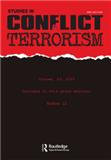
Studies In Conflict And Terrorism
中科院 3區(qū) JCR
大類:社會學(xué)
-
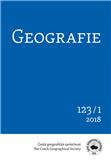
Geografie-sbornik Cgs
中科院 4區(qū) JCR
大類:社會學(xué)
熱門期刊推薦
-
Humanities And Social Sciences Communications
中科院 2區(qū) JCR
-
Electoral Studies
中科院 2區(qū) JCR Q1
-
Journal Of Human Development And Capabilities
中科院 3區(qū) JCR Q3
-
Land Use Policy
中科院 1區(qū) JCR Q1
-
Asian Perspective
中科院 3區(qū) JCR Q2
-
Technology In Society
中科院 1區(qū) JCR Q1
-
Child & Family Social Work
中科院 3區(qū) JCR Q2
-
Social Indicators Research
中科院 2區(qū) JCR Q1
